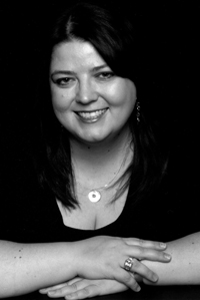Today, we are lucky enough to have literary agent Daniel Lazar of Writers House on the blog. He was nice enough to discuss the craft of writing with us. Thank you, Mr. Lazar, for being here!
Me: Sometimes, an agent/editor will reject an author’s manuscript because they feel that they didn’t connect with the author’s voice/it wasn’t strong enough. How do you define voice in fiction? And do you have any tips for a writer about how to make their voice stronger?
Mr. Lazar: I’m going to steal an analogy I heard from another agent (Jeff Kleinman at Folio Literary): If you watch shows like American Idol or the Voice, you’ll see a lot of talented singers walk across the stage. Out of 10 contestants, you’ll probably see 9 singers who are great and talented and worthy of praise– but then that 10th singer arrives on stage, opens their mouth and simply knocks the rest out of the park. Why? What does that 10th singer have? It’s impossible to define; they just have “it.” And not only do you realize that it’s extra special, but you also know you can’t teach “it” to the other 9. That’s what a great voice is. But in general, the way to make your writing voice stronger is to focus on specifics. A lot of fine and polished writing doesn’t really shine because it’s, well, fine. But not that memorable. It’s the little details– a writer capturing specific visuals, scents, turns of phrase– that make a fine piece of writing into a unique, special piece of writing.
Me: Another common reason for rejection is not connecting with the author’s characters. What makes a reader care about an author’s characters? How can a writer make their characters stronger?
Mr. Lazar: Years ago, I heard the most valuable answer to this question in my first days at Writers House from Al Zuckerman, who founded our agency. His insight has never steered me wrong: Readers like a character because of who that character loves, and who loves them. Crass example: create the most unlikable, nasty character in the history of literature, but give him a dog he dotes on, and readers will be putty in that character’s hand. That’s an oversimplified illustration, admittedly, but work backwards from there with your own version in your own work, and it should prove true.
Me: There’s a lot of talk about “high concept” fiction lately. Can you define it for us? Do you feel that it’s become more and more important for books to be high concept?
Mr. Lazar: They’ve been talking about high concept forever. It basically means a story (so this term can apply to film or theater too) that can be described very easily. You “get” its appeal in just a few words. You can usually tell if something is high concept based on how people — other than your immediate, biased circle of friends and family– react to the pitch; and it’s a hard thing to see objectively in your own work. THE DEVIL WEARS PRADA is a great example because you hear that title, and you hear in just a few words that it’s an insider story of the fashion world, and immediately you just “get” it, right? ROOM is another great example. But I don’t think it’s necessary for a book to be “high concept.” When I look at my bookself, I see many of my favorite books aren’t what I would call the most high concept–Middlesex, or Cutting for Stone, or The Blind Assassin–and they worked anyway because readers love them.
Me: As an agent, you see a lot of manuscripts from beginning writers. If there was one area could tell a writer to focus on, to work toward improvement in, what would it be?
Mr. Lazar: I mentioned the value of “specifics” above. That’s important. Also, start your story where the story really starts. Too many manuscripts meander until they get to the real point. Look at the opening paragraphs of MIDDLESEX, of GONE GIRL, of THE HELP. Whether or not you liked these books (I loved all of them), they’re great examples of what can hook millions of readers.
You can Find Mr. Lazar on Twitter here.
His Publishers Marketplace page is here.


